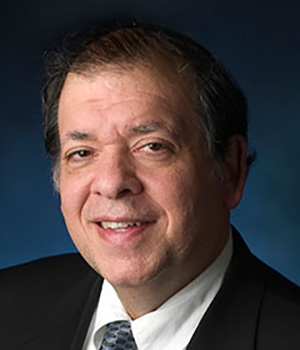
For each of the last four years since Rabbi Ozer Glickman, z”l passed away, it seemed every year there was a new monumental event the world faced where his wisdom and insight were missed.
Each day as I was faced with questions I never thought possible in the 21st century, of how a Torah Jew was to understand and act during a global pandemic or European war, I try to think what Rabbi Glickman would say. While this approach would sometimes give me echoes of an insight, it would likewise increase my longing to hear Rabbi Glickman’s own analysis and insights to these challenges.
This year, as the third of Nissan and Rabbi Glickman’s yahrzeit approached, when thinking about the rising threat of nuclear war and what my rebbe would say about the situation, looking through his writing I learned two valuable lessons.
The first was the truth of the Gemara in Avoda Zara 5b “אין אדם עומד על דעת רבו עד ארבעים שנה”—“A person cannot fully understand his rebbe’s knowledge until 40 years have passed.” While not even 1/10th of the way there since Rabbi Glickman’s passing, even the limited time has started to show how much more I still had to learn from my limited but precious time with him.
The second was the content of his post, written six years ago but increasingly applicable today. Posted on September 9, 2016, the “Rosh Yeshiva of Facebook” shared his thoughts on the upcoming anniversary of 9/11.
“It is creeping up on me again, the feeling that life will never be as good for my children as it was for me… I lost the feeling that life would always improve, that just as my parents had surpassed their immigrant parents and my first-generation impoverished family, that my kids would know more, achieve more, and live even more secure lives.”
I remember reading it then, as a college undergraduate with the optimism of a life ahead of me, thinking Rabbi Glickman was perhaps overstating things. The naivety of youth coupled with an unconscious bias made me hope his prediction and the impact it forecasted for my own future might prove to be inaccurate. Afterall, I thought, even with 9/11 and the rise of terrorism, there had been sustained global peace between most Western countries, medical science continued to show human’s progress in controlling the disruption of disease in our life, and in most countries it was safe to be a Jew.
But then, as a father of young children, seeing images of young Ukrainian men saying their possible final farewells to their fleeing families as they stayed to fight a war they never asked for, the continued uncertainty our world faces from the never-ending pandemic, and the rise of antisemitic attacks at home and abroad, I find myself having the same fears he wrote about.
Thankfully, Rabbi Glickman’s September post included his usual penetrating and insightful answers.
“Davening Musaf from the Amud that first year with my former neighbors and life-long friends in West Orange, New Jersey, I cried for the first time ever. מה אנו מה חיינו. I knew for the first time the truth of the starkest words every recited by people anywhere: הכל הבל [all is but a shallow breath]… One cannot consider oneself an adult until one recognizes the truth of הכל הבל. And then with healing comes the only response that I know: אבל אנחנו עמך בני בריתך [however, we are His people, and members of the covenantal community]. We are through family and people vouchsafed a share in immortality.”
His answer, as with most of what Rabbi Glickman wrote, is multifaceted and likely speaks to his diverse audience in different ways.
However, as his yahrzeit passes and I am faced with one more year without the active guidance of my rebbe, it presents me with some small measure of comfort. Seeing Rabbi Glickman’s share in immortality through his connection to the Jewish people, the lives he touched in broad Jewish and corporate worlds, and as the scion of a family upholding the Jewish tradition to the next generation, gives me hope. Regardless of the challenges of the present and the future, if we can see our lives, as Rabbi Glickman did, as living to uphold and transmit the covenant that makes us בני בריתך, then our spirit never dies.
*Translations of Hebrew are my own, not Rabbi Glickman’s.
Ari Friedman is an internal medicine resident and was a talmid of Rabbi Glickman from Yeshiva University/RIETS.













